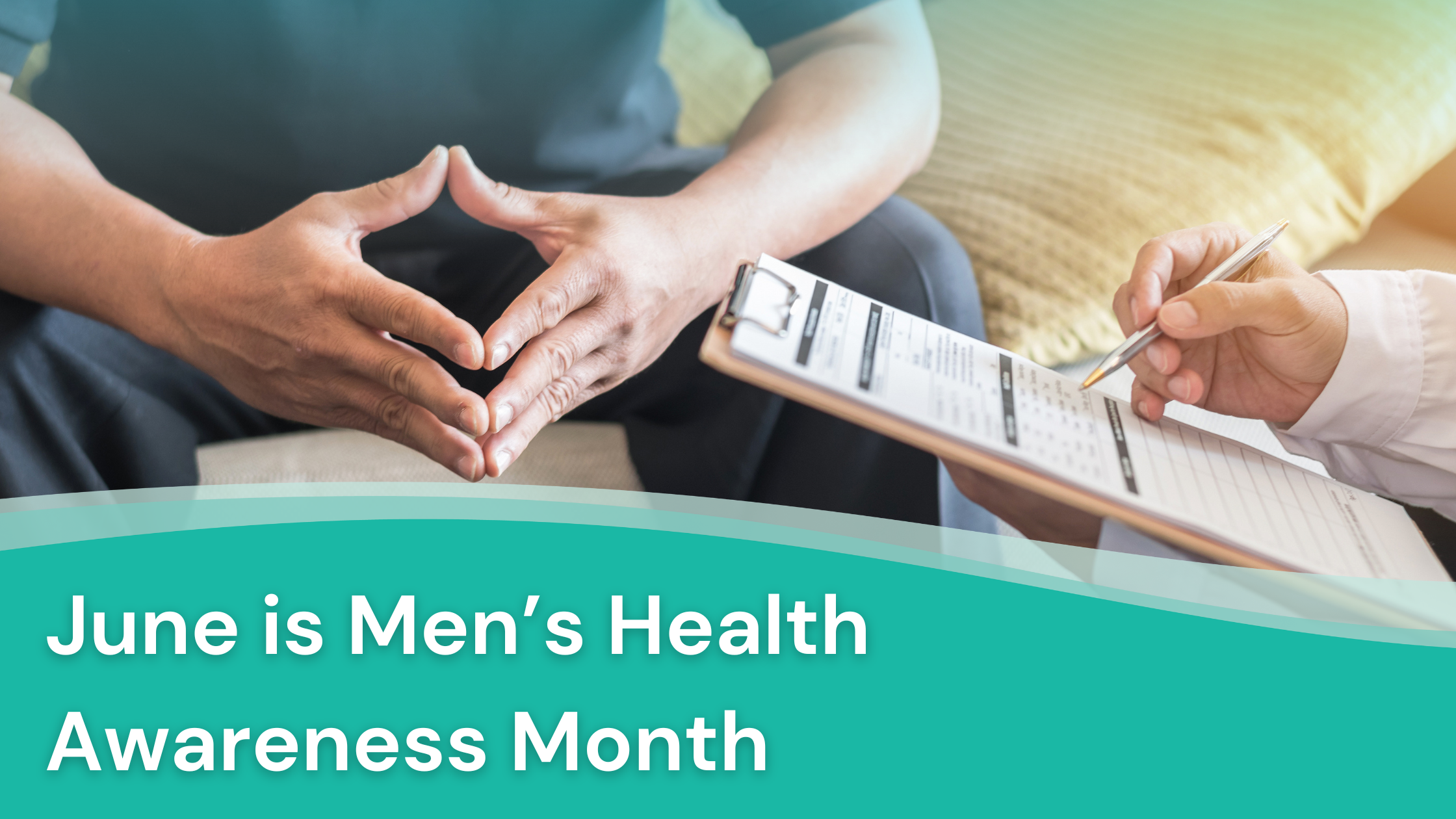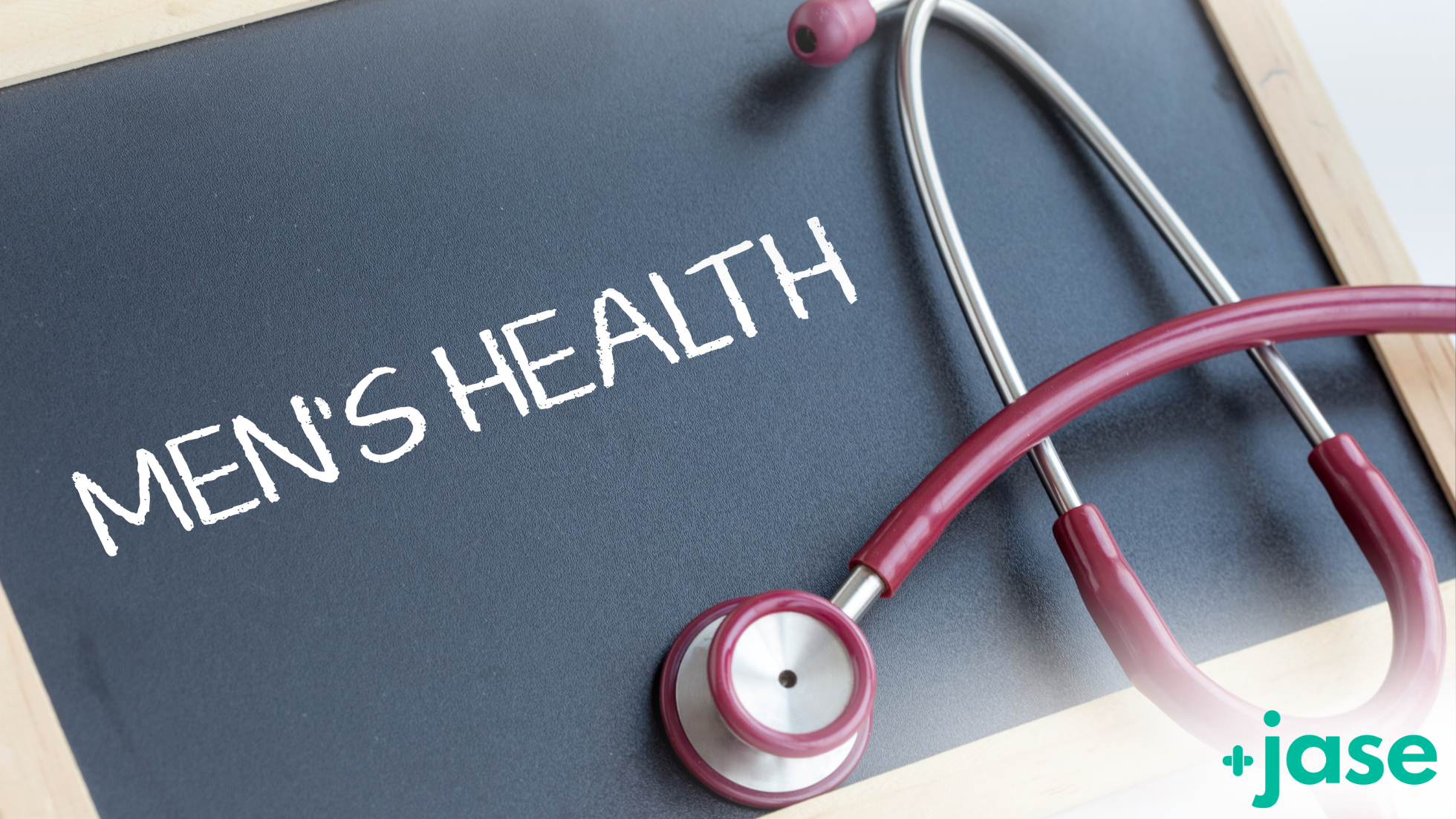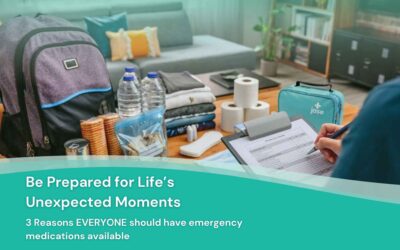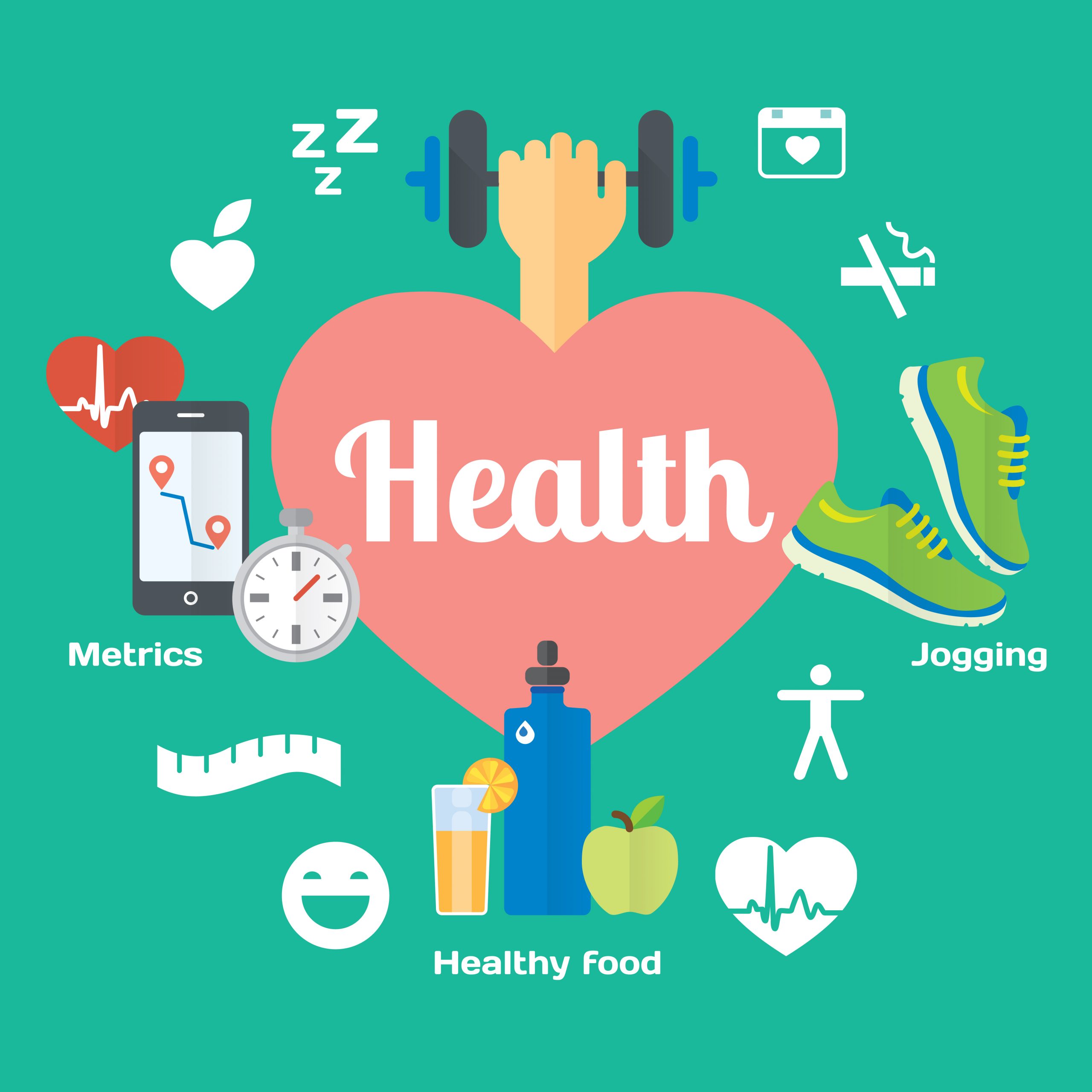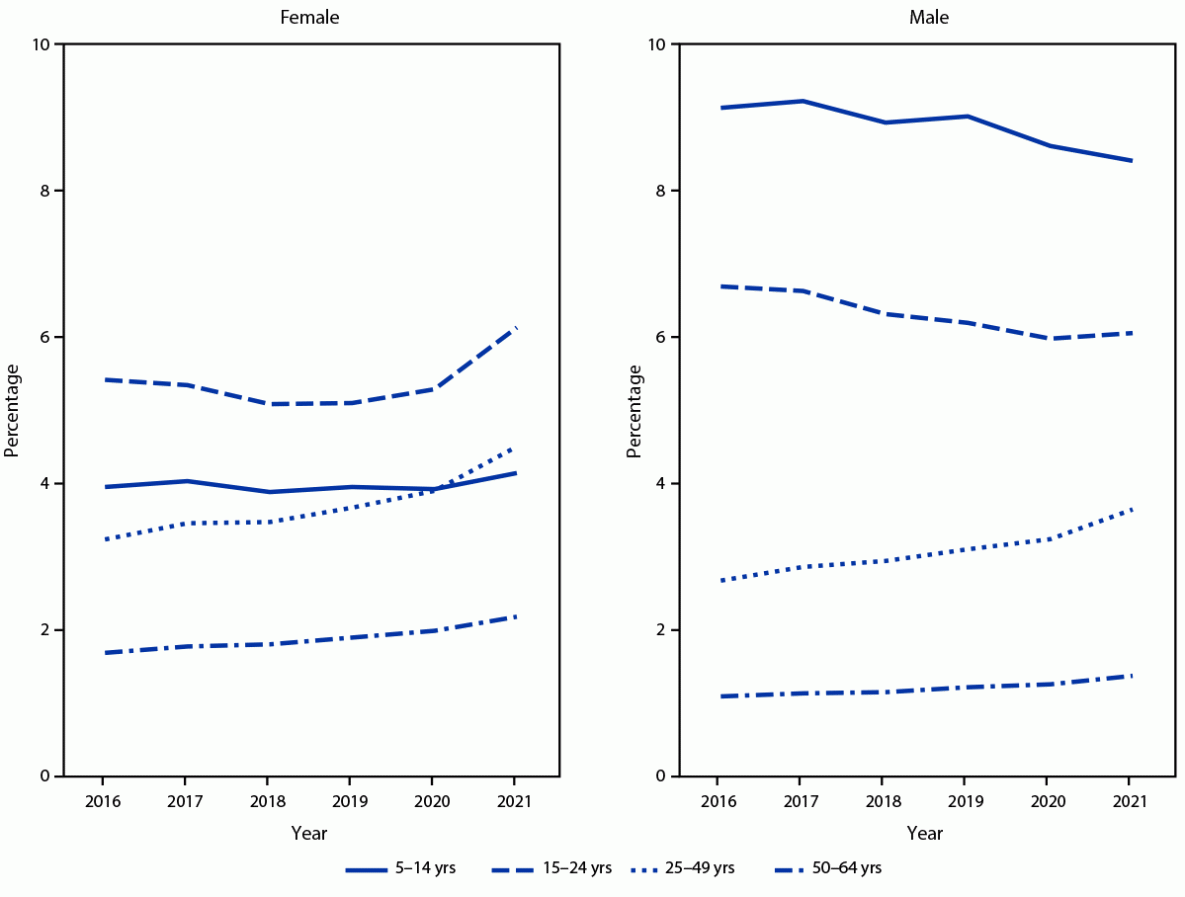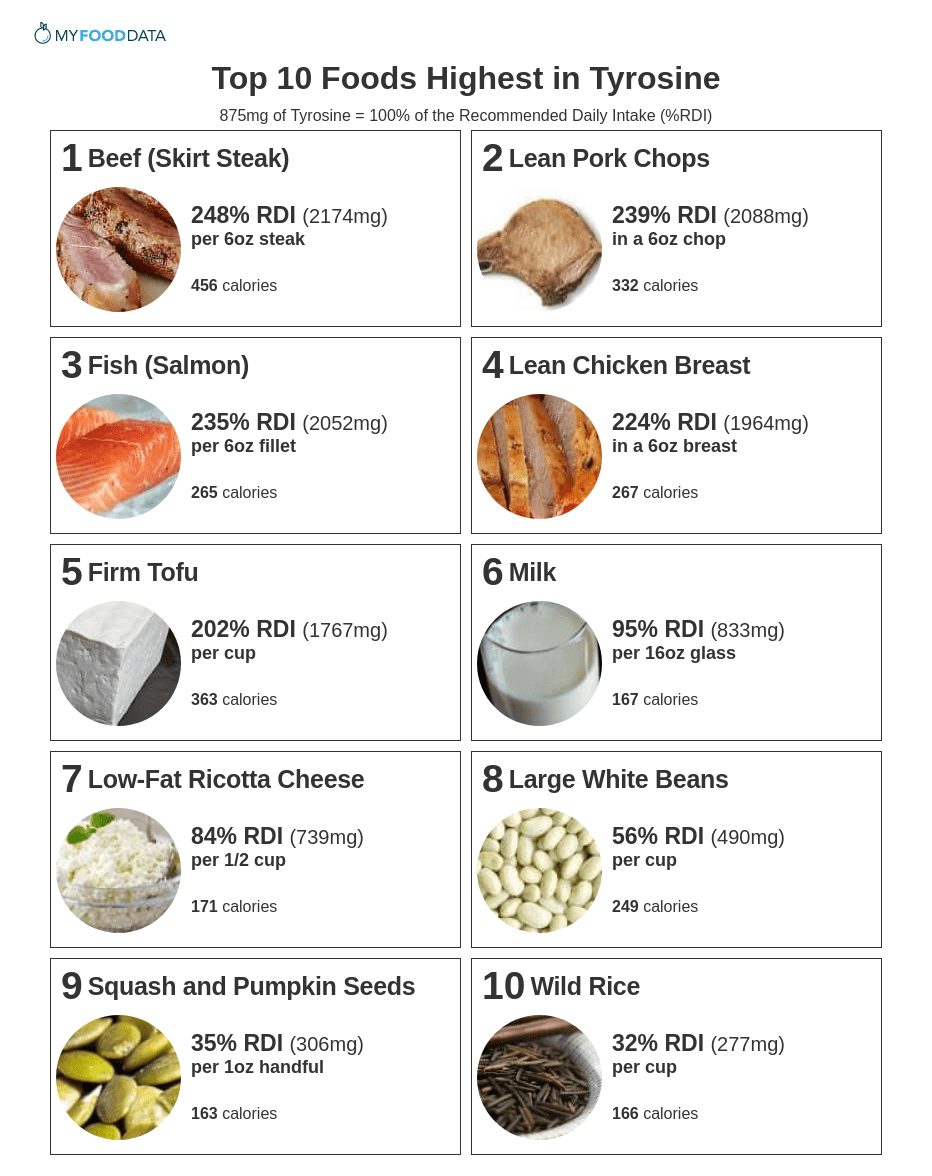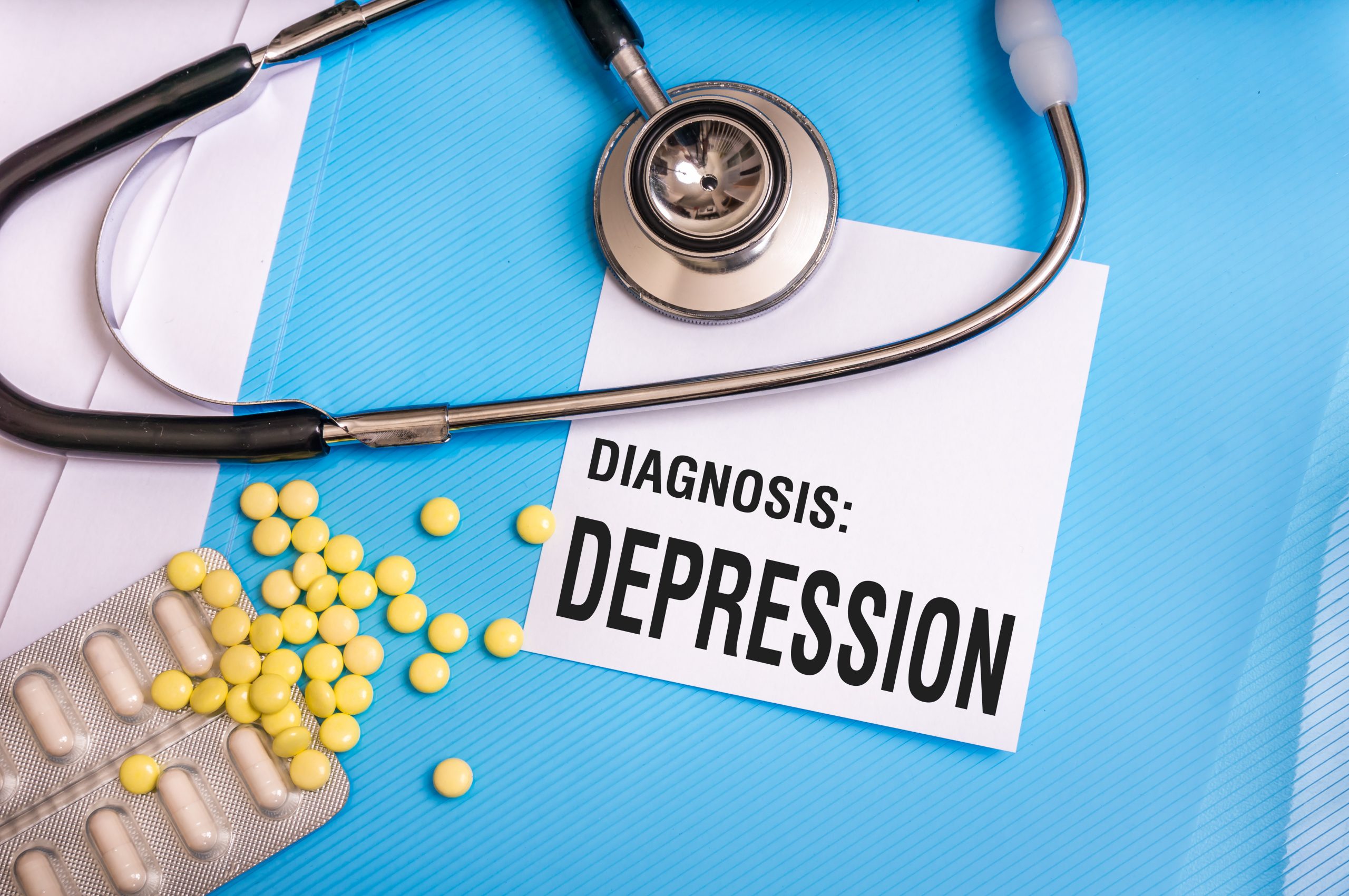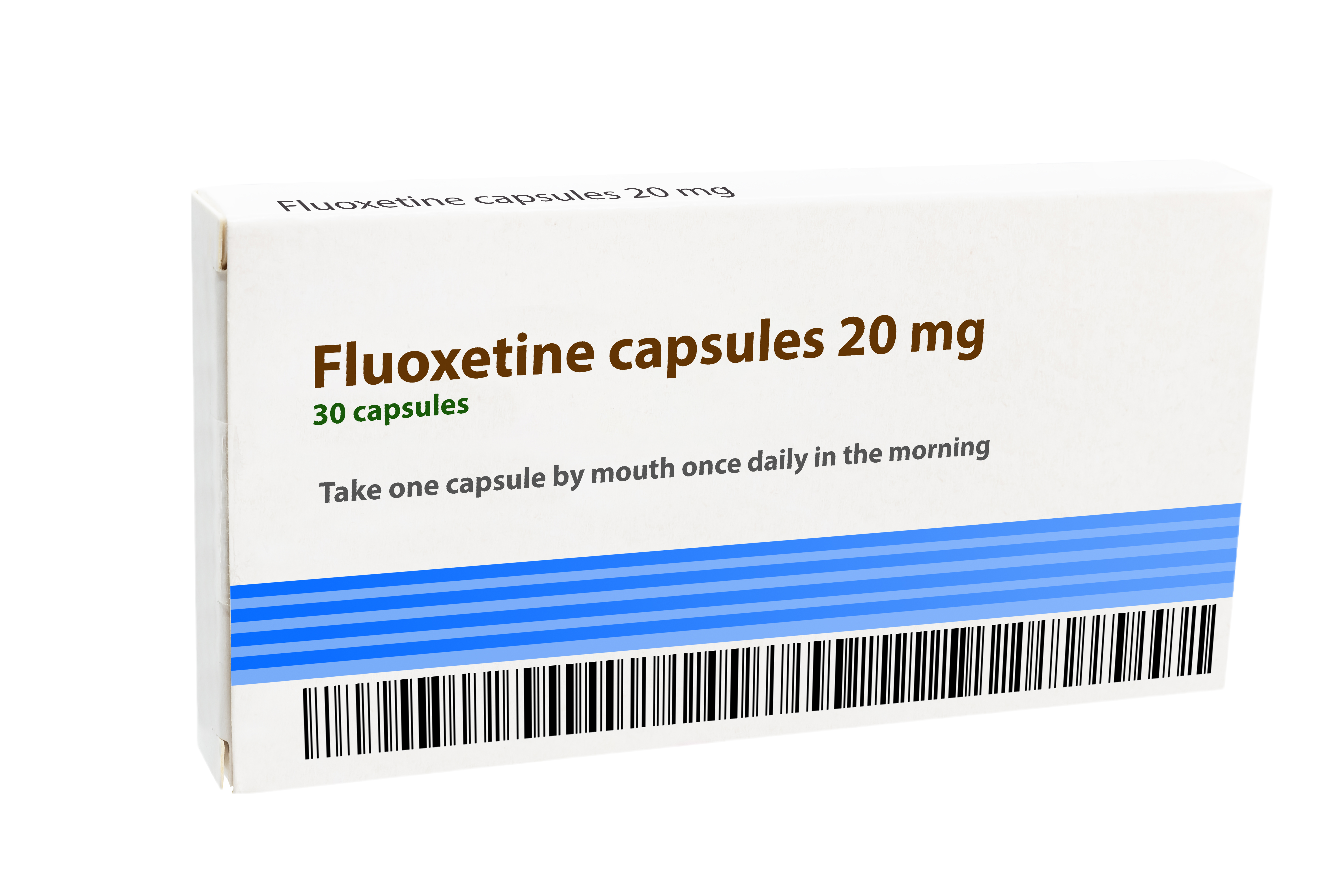When Disaster Strikes, It’s Not Hunger or Thirst That Takes the First Lives In every disaster zone, from hurricanes in the Caribbean to war zones in Ukraine, the pattern is the same. People worry about food and water, but it’s infection that kills first. A small wound...
Men’s Health Awareness Month
Don’t overlook regular checkups or mental health!
June is Men’s Health Month, a time to shed light on the importance of prioritizing well-being, and implement habits for a healthier lifestyle.
We all know the basics of how to live a healthier life: eat healthy natural foods, exercise, get adequate sleep, practice good hygiene, avoid harmful behaviors, etc. But men in particular often fall short in two key areas that women are typically more adept at: getting regular health screenings, and evaluating and addressing their mental health.
So as this month serves as a springboard to commit to a full spectrum approach to a healthier lifestyle throughout the year. Let’s take a look at these two crucial areas, and other ways men can be proactive in improving their overall health.
1. Regular Health Checkups: A Necessity, Not a Luxury
Preventive health care is crucial, yet many men delay or skip regular checkups. This tendency to put off visiting the doctor can lead to undiagnosed conditions and worsened health outcomes. Regular check-ups and screenings can detect potential health issues early when they are most treatable. Men should prioritize the following screenings:
- Blood Pressure: High blood pressure can lead to heart disease and stroke. Regular monitoring can help manage it effectively.
- Cholesterol Levels: High cholesterol increases the risk of heart disease. Screening every 4-6 years is recommended.
- Diabetes: Blood sugar tests can help diagnose diabetes early.
- Prostate Health: Men over 50 should discuss prostate cancer screening with their doctors. Those with a family history may need to start earlier.
- Colon Cancer: Screenings should begin at age 45, or earlier if there is a family history of colon cancer.
| 65% of men avoid going to the doctor as long as possible, according to an annual study by the Cleveland Clinic |
2. Mental Health Care: Breaking the Silence
Mental health is as important as physical health, yet men are often less likely to seek help for mental health issues. The stigma surrounding mental health can prevent men from talking about their feelings or recognizing symptoms of mental illness. Addressing mental health involves:
- Recognizing Symptoms: Men should learn to recognize the signs of mental health issues, such as persistent sadness, anxiety, irritability, or changes in sleep and appetite.
- Seeking Help: Professional help from a therapist or counselor can be crucial for those dealing with depression, anxiety, or other mental health issues. There are many resources available, including hotlines and online therapy options.
- Stress Management: Techniques such as meditation, deep breathing, and hobbies can reduce stress.
- Social Connections: Maintaining strong relationships with family and friends provides emotional support. Don’t hesitate to talk to someone you trust about what you’re going through.
3. Balanced Diet
A balanced diet rich in fruits, vegetables, whole grains, lean proteins, and healthy fats can prevent many chronic diseases. Key dietary tips include:
- Reduce Processed Foods: Limit intake of processed and sugary foods.
- Increase Fiber Intake: Fiber aids digestion and can reduce the risk of heart disease and diabetes.
- Healthy Fats: Include sources of healthy fats such as avocados, nuts, and olive oil.
- Hydration: Drink plenty of water to stay hydrated and support bodily functions.
4. Regular Exercise
Physical activity is vital for maintaining a healthy weight, reducing the risk of chronic diseases, and improving mental health. Aim for at least 150 minutes of moderate-intensity or 75 minutes of high-intensity exercise per week. Incorporate:
- Cardiovascular Exercise: Activities like running, cycling, and swimming.
- Strength Training: Builds muscle mass and strengthens bones. Include exercises like weightlifting or body-weight exercises.
- Flexibility and Balance: Yoga or stretching exercises can improve flexibility and prevent injuries.
5. Dental Health
Oral health is a critical aspect of overall well-being that is often overlooked. Poor dental hygiene can lead to gum disease, tooth decay, and even cardiovascular disease. Tips for maintaining dental health include:
- Regular Dental Visits: Schedule check-ups every six months.
- Daily Brushing and Flossing: Brush twice a day and floss daily to remove plaque and prevent gum disease.
- Limit Sugary Foods and Drinks: Excessive sugar intake can lead to cavities and tooth decay.
6. Maintain a Healthy Weight
Managing weight is crucial for preventing a host of health issues, including heart disease, diabetes, and certain cancers. Tips for maintaining a healthy weight include:
- Balanced Diet: Focus on nutrient-dense foods and control portion sizes.
- Regular Exercise: Incorporate both cardio and strength training exercises into your routine.
- Monitor Your Progress: Keep track of your weight, dietary habits, and physical activity to stay motivated and on track.
7. Healthy Habits
Incorporating healthy habits into daily life can significantly impact overall health:
- Quit Smoking: Smoking is a leading cause of many diseases, including lung cancer and heart disease. Seek support to quit smoking.
- Limit Alcohol: Excessive alcohol consumption can lead to liver disease, cancer, and other health issues. Moderation is key.
- Adequate Sleep: Aim for 7-9 hours of sleep per night. Good sleep hygiene includes maintaining a regular sleep schedule and creating a restful environment.
- Safe Practices: Wear seatbelts, use sunscreen, and take precautions to prevent injuries.
Men’s Health Awareness Month serves as a reminder for men to prioritize their health, especially through regular health checkups and attention to mental well-being. By incorporating these tips into daily life, men can take significant strides toward a healthier, happier future. Remember, it’s never too late to start making positive changes. Small steps can lead to big improvements in health and well-being.
Lifesaving Medications
Everyone should be empowered to care for themselves and their loved ones during the unexpected.
Recent Posts
Keeping you informed and safe.
Medical Readiness: What Really Kills First
Exploring Dr. William Makis’ Hybrid Orthomolecular Cancer Protocol: Focus on Ivermectin and Mebendazole/Fenbendazole
Exploring Dr. William Makis’ Hybrid Orthomolecular Cancer Protocol: Focus on Ivermectin and Mebendazole/Fenbendazole *Disclaimer: This article is for educational purposes and does not constitute medical advice. Always seek professional guidance.* In the evolving...
Be Prepared for Life’s Unexpected Moments
3 Reasons EVERYONE should have emergency medications avaiable. It's all about access—access to medications and care when you need it most. And when things happen outside of your control that access can disappear.Below are 3 examples of how easily this access can be...
Youth Preparedness: Teaching, Building, and Coping with Disasters
Educating and preparing your children ahead of time means fewer surprises in the event of an emergency.Growing Up Prepared: Empowering Youth in Disaster Preparedness As we observe National Preparedness Month, it's crucial to remember that disasters can strike at any...

